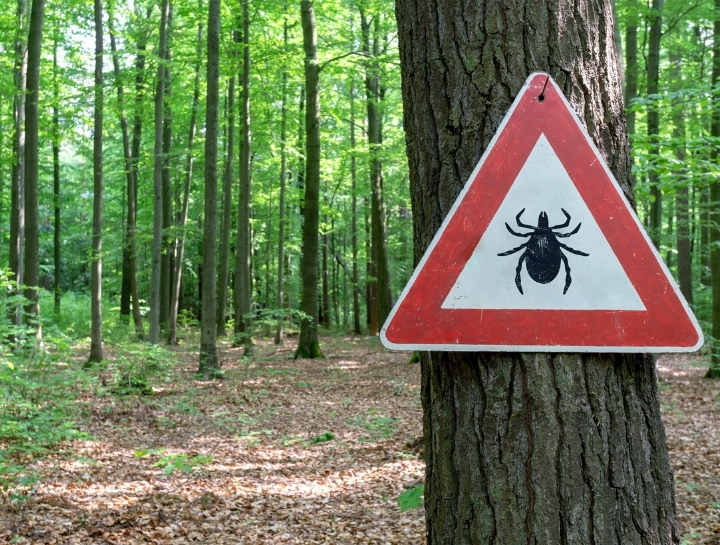The Warm Weather's Going Away, But Fleas & Ticks Aren't

Traditionally, fleas and ticks have been thought of as a problem that we deal with in the spring and summer.
As we hike, BBQ, and enjoy our time outside we are constantly reminded of the pests that surround us. And once the early sunsets and pumpkin spiced lattes of fall set in, we tend to relax on our upkeep of some common preventatives. However, the fall and even winter can pose an equally great threat to our furry family if we do not remain vigilant.
Let’s look at a few of the critters and the harm they can cause to our pets:
Fleas - These are incredibly common parasites for our area, and often the most annoying to deal with for many of our clients. A single female flea can easy become an infestation of hundreds, even for our indoor only pets. Once established, these fleas will drop thousands of microscopic eggs that live in our house for months, and hatch after we think we have cleared the infestation. The incredible itch they cause to our pets leads to self trauma from licking and chewing and secondary bacterial infections that further compromise their health. Pets unlucky enough to be allergic to flea saliva will have even more severe reactions, and a serious decrease to quality of life.
Ticks - Ticks are an increasingly difficult burden for pet owners and public health officials alike, especially in the northeastern United States. As new ticks move into our area, and current ticks are found to spread new diseases, the risks to our pets’ increases every year. Lyme disease is the most well-known of the diseases our pets can get from ticks and commonly causes joint pain, lameness, fever, and lethargy, but if untreated can also cause damage to the kidneys leading to kidney failure. Less common diseases such as Anaplasmosis and Ehrlichia can also be spread by ticks, causing blood disorders compromising the immune system or creating bleeding disorders.
Heartworm Disease - Being spread by mosquitoes, this is the disease most commonly associated with summer. However we do still see mosquitoes and the spread of heartworm even in January and February. I have personally treated several dogs that were infected over the winter months because doses of the preventative were missed. This treatment is costly to pet parents, difficult on our patients, and entirely preventable.
Wow! That’s a lot of scary stuff coming from these creepy critters. Luckily, all of these diseases are preventable.
With the increasingly mild winters we have in our area, these pests are more and more prevalent in fall and winter months every year. We simply do not get the die off or reduced numbers during these months that we used to benefit from. But with increased challenges comes increased options to tackle these problems. With the assortment of flea, tick, and heartworm preventatives available to us we, can find the right fit for each and every pet to keep them healthy and happy.
Brian W. Calabro, DVM
